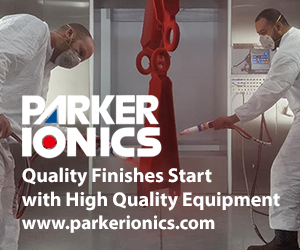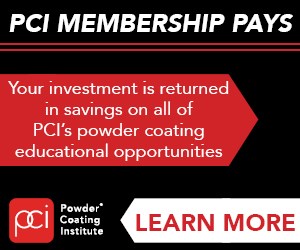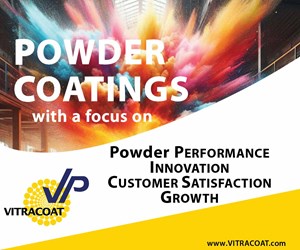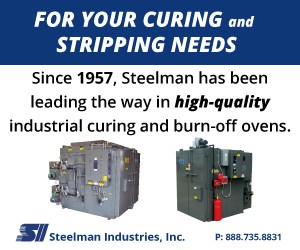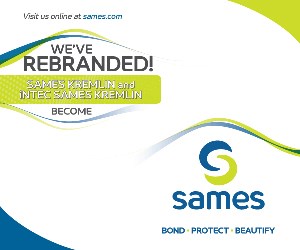A Conversation with … Joy H. Forsmark, Ford Motor Co.
Joy H. Forsmark is a staff member of Ford Motor Co.’s Research and Advanced Engineering Laboratory, working in casting and solidification modeling. She will be a featured speaker at ECOAT14 next month in Orlando.
Joy H. Forsmark is a staff member of Ford Motor Co.’s Research and Advanced Engineering Laboratory, working in casting and solidification modeling and mechanical properties evaluation of aluminum and magnesium alloys for powertrain and body applications. She will be a featured speaker at ECOAT14 next month in Orlando (See Product Finishing's coverage of the event on p. 30). Forsmark holds a bachelors in materials science from Rice University, a masters in high-temperature creep in superplastic ceramics from the University of California San Diego, and earned her Ph.D. with a dissertation on the kinetics of recrystallization in adiabatic shear bands in metals.
PF: Your talk at ECOAT14 is on light metals in cars. How much lighter can the auto industry go in your estimation?
JF: The automotive industry is looking at a lot of different materials and design strategies to reduce weight both internally and through consortium programs such as the U.S. Automotive Materials Partnership. For example, Ford recently introduced the new F150 which has a weight reduction of up to 700 lbs in the body-in-white through the use of Al alloys and high-strength steel. The strategic use of other materials such as Mg alloys, carbon fiber and lightweight plastics could also provide opportunities for further weight reduction and are all being investigated.
PF: There is also a concern with corrosion in some of these light metals. How is the automotive industry working to address these issues?
JF: One of the main challenges in the corrosion area is actually the use of multiple types of materials and how they are joined and protected from corrosion under galvanic conditions. The automotive industry has been investigating and implementing lots of strategies to prevent corrosion, and the coatings industry has been a major partner in this area for a long time. The Ford MKT Magnesium liftgate inner, for example, uses a novel coating and joining strategy to protect the door from corrosion and it works quite well.
PF: What does a typical day for you look like at the Ford Research and Advanced Engineering Laboratory?
JF: There really is no typical day for me. As a researcher, I will sometimes spend my day in the lab and sometimes in the office planning, writing, and analyzing results. I collaborate with colleagues on most of the projects I am working on, so I spend a lot of time working with folks from around the company and the supply base.
PF: Your academic degrees are in some very specific topics. What led you to study materials in general, and specifically those topics of metals and ceramics?
JF: I started out studying mechanical engineering, but quickly switched to materials science during my sophomore year in college after taking a required Introduction to Materials course. I found that I enjoyed the challenge of the field. I
studied low strain rate deformation (creep), high strain rate deformation and fatigue behavior, and then used that knowledge to examine manufacturing issues that influence component performance, and more recently, mechanical and corrosion behavior of dissimilar joining.
PF: You spent some time studying in Germany. What led you there, and how was that a different experience from research you’ve done in the U.S.?
JF: I have always loved to travel, so when I got the opportunity to work abroad as a researcher in Germany I eagerly accepted it. I have met great scientists from all over the world, and I would say that good research is being done in a lot of places, so I didn’t find the research experience all that different from what I found in the U.S.
PF: What leadership traits have helped you along the way?
JF: The two leadership traits that, in my opinion, are the most important in research are keeping the big picture in mind at all times and creating a culture of truth-telling in the team. In leading any team, it is easy to get off track—particularly in research—because interesting challenges are always coming up. So it is important to make sure that you are always answering the question, “What is the ultimate goal here and how does this activity apply?” That is how you move forward.
PF: If you could trade jobs with anyone for a day, who would it be?
JF: I love to travel, so I would probably trade jobs with one of those TV hosts on the Travel Channel.
Related Content
Robots, AI and Superb BMW Surfaces
There isn’t an automotive paint shop in the world that doesn’t have post-paint inspection and defect processing. But BMW is doing this with levels of technology at a plant in Germany that exceed all other paint shops in the world.
Read MoreFinishing High Reliability, Function Critical Parts
From safety critical automotive and aerospace components to lifesaving medical micro-components and implantable devices, Indiana-based Electro-Spec finishes applications that require zero failure rates.
Read MoreIndonesian Plater Finds Fast Success in Auto Market
This father/son team, inspired by inventor Michael Faraday, focuses on anti-corrosion methods and automated processes to help their Indonesian plating business flourish.
Read MoreRead Next
Episode 45: An Interview with Chandler Mancuso, MacDermid Envio Solutions
Chandler Mancuso, technical director with MacDermid Envio discusses updating your wastewater treatment system and implementing materials recycling solutions to increase efficiencies, control costs and reduce environmental impact.
Read MoreDelivering Increased Benefits to Greenhouse Films
Baystar's Borstar technology is helping customers deliver better, more reliable production methods to greenhouse agriculture.
Read MoreMasking Solutions for Medical Applications
According to Custom Fabricating and Supplies, a cleanroom is ideal for converting, die cutting, laminating, slitting, packaging and assembly of medical-grade products.
Read More



